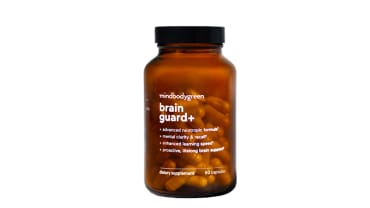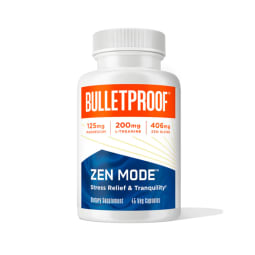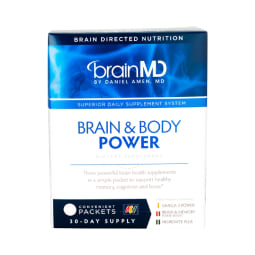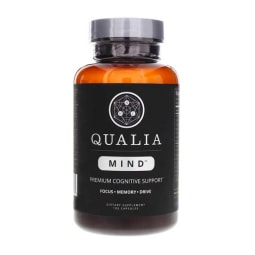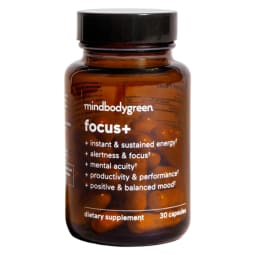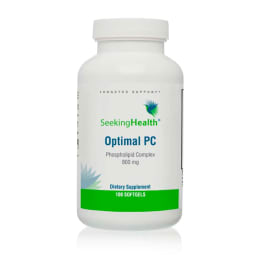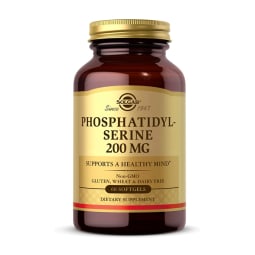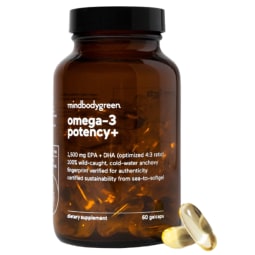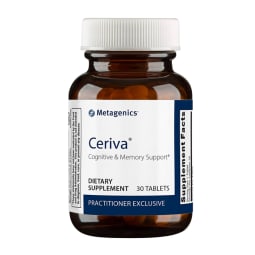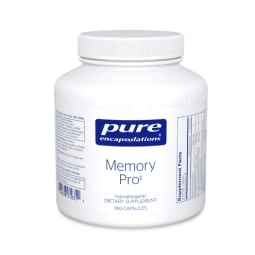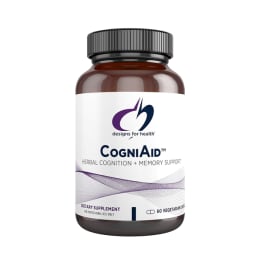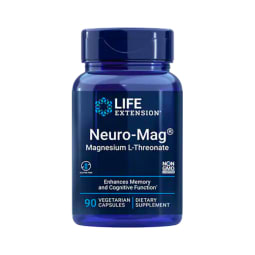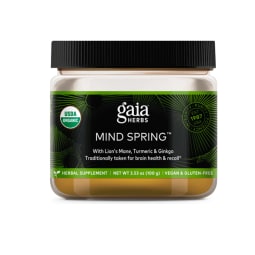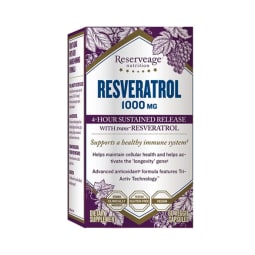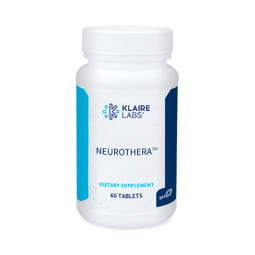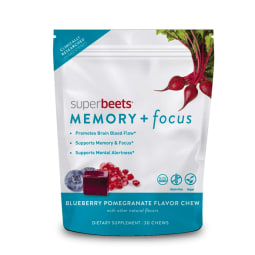Memory supplements can help support these daily activities.* But not all memory supplements are created equal. That’s why we asked mindbodygreen’s vice president of scientific affairs Ashley Jordan Ferira, Ph.D., RDN, to scour the market to find the 16 best memory supplements available today. Do they magically restore your memories or provide superhuman cognitive abilities? No, of course not. As cool as it would be to live in the Wizarding World of Harry Potter or the Marvel Cinematic Universe, where magic and superpowers exist, we prefer to lean on science here. And scientifically speaking, there are both preclinical studies (i.e., animals) and clinical trials (i.e., humans) that show that many nutrients, botanicals, and bioactives featured in dietary supplements demonstrate statistical and clinical significance for memory1, recall, and related brain outcomes (e.g., learning, processing, retention, and cognitive performance).* That said, memory supplements are not designed to reverse specific brain health concerns but rather support memory and promote overall brain function. We’re talking proactive cognitive support and brain longevity, here—and the earlier the better!* In addition to cognitive benefits such as focus, attention, concentration, alertness, cerebral blood flow, mood support, stress resilience, and neurotransmitter synthesis, many of these ingredients have a specific effect—whether direct or indirect—on memory creation, recall, and retention. Board-certified neurologist and environmental toxicologist Ilene Ruhoy, M.D., Ph.D., encourages her clients to utilize nootropic supplements to complement their holistic health habits. “Clean foods, movement, meditation, and spending time in nature are critical for brain nutrition, regeneration, and longevity,” she explains. “As part of my integrative approach to neurology, I also value smart, holistic formulas that nourish and support brain function and elevate cognitive potential, regardless of stage in life.” Here are some key types of nootropic ingredients, plus specific examples of how they promote memory and overall cognitive function. For example, in a 2016 2American Journal of Clinical Nutrition2 study2, participants with lower vitamin B12 levels had suboptimal memory performance (even when their B12 levels were considered to be in a “normal” range). Researchers believe this is because vitamin B12 helps promote microstructural integrity of the hippocampus, which is a major part of the brain that helps us process and retrieve memories.* In a 2010 preclinical study3 published in Neuron, researchers discovered that increased levels of magnesium L-threonate in the brain improved short-term neuroplasticity, long-term potentiation (i.e., synapse signaling), and both learning and memory functions in rats.* For example, L-tyrosine is a precursor for the neurotransmitter dopamine, which plays a part in mental energy, motivation, and happiness. According to a 2013 4Frontiers4 review4, increasing your L-tyrosine intake (through diet or supplementation) can help promote working memory updates which are the brain’s “screening system” to decide whether or not new information is worth holding on to.* (Pretty cool, huh?) In addition to L-tyrosine, here are some other amino acids that promote memory and overall cognitive function:* “Evidence-based botanicals with nootropic actions are one of my specialties as a naturopathic health care practitioner. One of the most exciting botanicals in the cognitive arena is the South African succulent Sceletium tortuosum (aka kanna),” shares Jeremy Appleton, N.D., director of scientific and medical affairs at PLT Health Solutions Inc. “The clinically researched and patented Zembrin® extract promotes mental agility and calm, at the same time. Through its impact on serotonin levels, brain waves, and neurocircuitry, this unique plant extract helps reduce reactivity to stress, elevates executive function, and enhances cognitive flexibility.”* According to a 2017 study on older adults from the World Journal of Neuroscience, kanna’s ability to influence brain activity affects a number of emotional and cognitive processes—including memory and attention.* And kanna is only the edge of the nootropic botanical garden. Here are some other powerhouse plants that support memory and other cognitive functions:* Caffeine is an ancient, widely consumed phytonutrient found in foods and beverages like coffee, tea, and cacao that many people are intimately familiar with and utilize for its energizing benefits. Targeted supplements with sustained-release caffeine are also a more novel, innovative offering in the world of energizing phytonutrients.* Other phytonutrients might not be as well known by name, like curcumin. If you’ve heard of turmeric root’s anti-inflammatory properties, you can thank curcumin—the principal curcuminoid in turmeric—for its whole-body health benefits (including your noggin).* When it comes to memory support, the red-wine-famous phytonutrient resveratrol (which can be derived from fermentation or Japanese knotweed to be used in supplements) is especially beneficial.* In a 2020 5Nutrients5 study5, resveratrol supplementation was found to improve verbal memory in postmenopausal women.* Researchers believe this benefit is largely due to resveratrol’s antioxidant and cerebrovascular properties; indeed, because it brings blood to the brain and keeps free radicals out, resveratrol has been found to be universally helpful for cognitive function and brain longevity.* Here are some additional phytonutrients that support memory and brain function:* Neuronutrient citicoline (aka CDP-choline) is massively beneficial to promoting and maintaining cognitive function—anytime but especially later in life.* In a 2021 study on healthy older adults published in the Journal of Nutrition1, researchers found that citicoline supplementation (specifically, Cognizin®) enhanced overall memory, with significant improvements in episodic memory.* Award-winning cognitive health researcher and lead author of the study Eri Nakazaki, Ph.D., shares that powerhouse neuronutrient citicoline boasts a robust body of published scientific evidence. “This nootropic has impressive efficacy to nourish and promote our brain and executive function—supporting the structure and function of our neurons, neurotransmitter levels (especially acetylcholine), and diverse cognitive metrics spanning brain energy, attention, memory, and cognitive performance.”* Phospholipids—think phosphatidylserine and phosphatidylcholine—and other key phospholipid precursors (citicoline) or constituents (brain-centric omega-3 fats EPA and DHA) are incredibly vital to overall brain function.* They help maintain the structure, function, and integrity of cellular membranes, which make up the outer layer of all cells (including those in the brain like neurons and glia).*



















